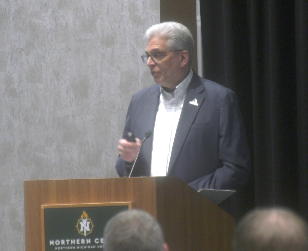LANSING, Mich. (WZMQ) – Michigan lawmakers are hoping to update the state’s minimum wage before changes take effect in February. A decision from the Michigan Supreme Court will raise the minimum wage to $12 an hour and eliminate the tipped wage credit.
According to State Representative Graham Filler (R- Duplain Township), the changes on the way to the state’s wage laws are the perfect storm to crush small businesses and tipped workers across the state.
Michigan’s Supreme Court handed down a decision in July that reversed changes to the state’s wage law. That decision will set the minimum wage to $12.48, start to phase out the pay adjustments for tipped workers and require paid sick leave.
Filler introduced two separate bills last week with Representative Nate Shannon. If passed, the bills will override the court’s decision and set a new wage law for the state.
He said that the combination of wage increases, mandatory sick leave, and the removal of tipped wages would overwhelm small businesses and cause tipped workers to lose money in the end.
“I just feel it is really damaging to a Michigan business climate. We already struggle with the weather, with our population growing older here in Michigan, and so I think there needs to be a legislative fix and I think it’s going to be bipartisan.” Filler said. “I feel like this is going to take a bipartisan take because it’s not a partisan issue. Do you want Michigan businesses to succeed, or do you want to hurt them so much that I’m not sure anyone would want to do business in Michigan?”
Advocates from One Fair Wage rallied for the decision, and are celebrating the changes as a win for tipped workers in the state. However, not all workers seem to agree.
“I’ve talked to both sides of the aisle, and they’ve been approached by business owners, servers, anybody in the business community really who are saying this is bad for my district.” Filler said. “I think that court decision was a bad one. I think it’s anti-employee and anti-employeer and I think it’s going to really damage Michigan’s business climate.”
The bills aim to slow down the wage increase, ultimately setting the minimum wage at $15 by 2029, and keeping the tipped wage at 38%. The second bill will address paid sick leave, Filler said he’s working closely with business leaders and employees to address public concerns while protecting business owners. The bills are now waiting to be heard in committee but will need to be passed through the House and Senate before they adjourn in December.









